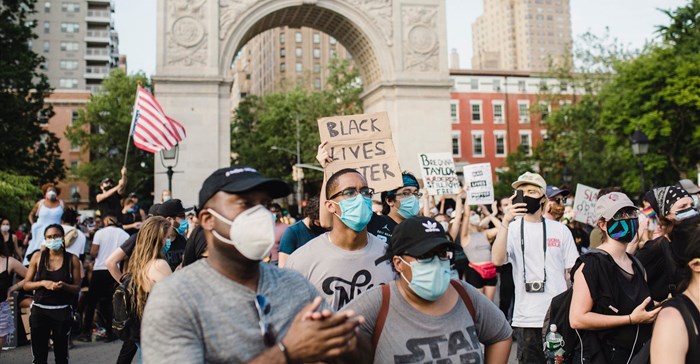
Related



Effectively transforming SA’s business sector goes well beyond law and regulation
Taelo Mojapelo 28 Oct 2025



Top stories




Companies can go beyond the hype and win the Black community over if they take concrete, long-lasting actions. Here are five steps to achieve this goal.
Before pledging to support external stakeholders, brands need to take a hard look in the mirror and practice what they preach by improving their own diversity numbers. According to the Center for Talent Innovation, Black professionals represent only 8% of the workforce. The numbers are even worse at the executive level where Black employees represent a mere 3.2% and only four of them (yes, four) are Fortune 500 CEOs. Numbers don’t lie and brands need to be held accountable for their hiring practices.
The challenge is compounded in the startup community where the “old white boys club” culture often prevails. With the percentage of college-educated African Americans steadily rising (from 17% in 2000 to 23% in 2017), companies have no excuse not to find skilled and talented Black professionals to hire. They need to ensure their vocal commitments to fighting racial injustice translate into a complete overhaul of their HR business lines with concrete recruitment KPIs, retention and career advancement strategies, inclusive workshops and team building activities that foster an inclusive company culture.
Brands also need to establish meaningful relationships with the Black community by implementing a pathos-based strategy and enabling mutually engaging conversations. Company statements are outdated. In today’s world - which is marked by complex consumer engagement dynamics - brands need to lead with empathy, connect emotionally with their audiences and make themselves more accessible. Company leaders ought to create a positive feedback loop by sitting down with members of the Black community, listening to their perspectives, and building an action plan with them instead of for them.
Take the example of venture capital firm Base10. The founders have pledged to make a time commitment to get to know underrepresented communities on top of their usual financial support to organisations fighting inequality. Brooklyn Bridge Ventures, another venture capital firm, has made accessibility a focal point of its investment philosophy: Its managing partner has successfully built an engagement platform that fosters an open dialogue with minorities. This platform involves organising weekly lunches with the tech community, building a Twitter list of Black professionals in Tech and Media and engaging with entrepreneurs, often on a one-to-one basis.
Investors such as Brooklyn Bridge Ventures know that what Black businesses need is access to equal funding opportunities and a tangible commitment from the VC industry. According to CB Insights, Black founders receive only 1% of venture capital. Venture firms should pledge to commit a percentage of their active funds to Black startups or launch complimentary Black-focused funds. Silicon Valley giant Andreessen Horowitz took a small but important step in the right direction with the Talent x Opportunity (TxO) fund, a $2.2m donor-advised investment vehicle for underserved founders.
Corporates and brands can also play a role in reshaping the investment landscape with their venture arms through three concrete steps: strengthening existing funding commitments with a diversity lens, launching new inclusive funds, and partnering with organisations such as Transparent Collective, BLCK VC and Change Catalyst that help companies improve their diversity strategies.
To make a real difference in the fight against racial divides, brands need to express continued and permanent support to the Black community after the camera stops rolling. The proverbial “Eyeballs vs. Engagement” starts with the brand itself: Announcing a Black-focused initiative on social media is a relatively easy step to take when the moment calls for it. It is what happens between those increasingly narrow periods of social outcry that defines a company’s engagement and its true commitment to fighting racial injustice.
This commitment involves consistently hiring more minorities, implementing a multi-year diversity agenda, and strengthening the ties with the Black community with impactful activities such as mask donations, youth training and mentorship programs.
It is a fact that diversity is good for business. According to Nielsen, the African American market saw a 114% increase between 2000 and 2018 (compared to an 89% increase in white buying power) and black buying power jumped from $961bn in 2010 to $1.3tn in 2018. Brands should leverage this opportunity by investing in initiatives that foster Black culture.
YouTube is showing the way with a new multi-year $100m fund dedicated to amplifying the voices of Black artists and Facebook also committed $100m to support Black creators and nonprofits. Culture is a fundamental component of the fabrics of the Black community and companies need to realise that any demonstration of support has to be aligned with a genuine appreciation and respect for black culture.
The tragic events of the last couple of months have led to an outpouring of support for the Black community, from major brands and small businesses alike, with boastful pledges and the launch of significant initiatives. Organisations now need to look beyond the hype and take long-lasting steps to improve their own internal operations, build a genuine and mutually engaging relationship with the Black community and invest in Black businesses and the broader Black culture. They also need to recognise that while their anti-racism initiatives are great, they only address part of the problem if they are built in a reactive way instead of being part of a more comprehensive system change strategy.
